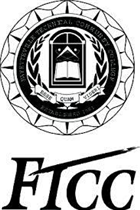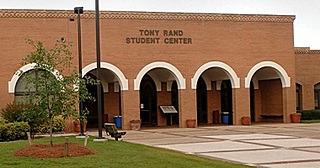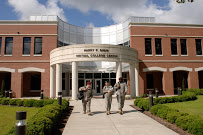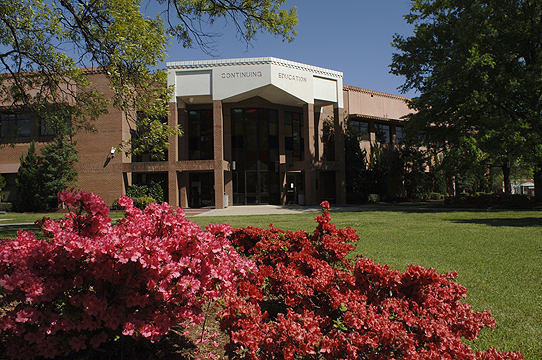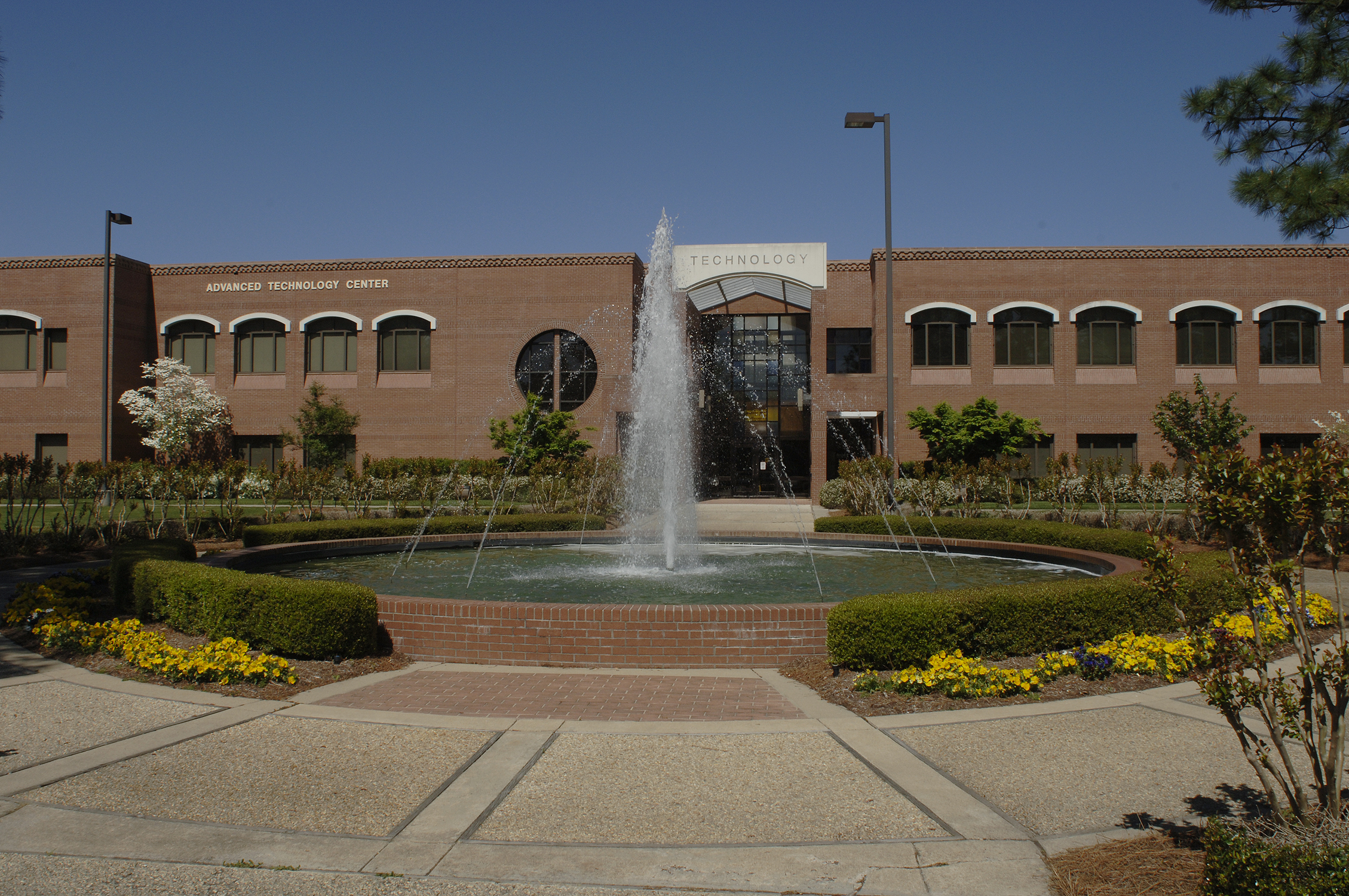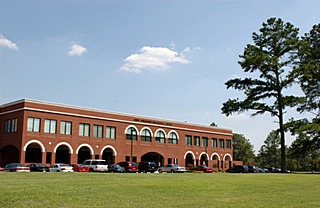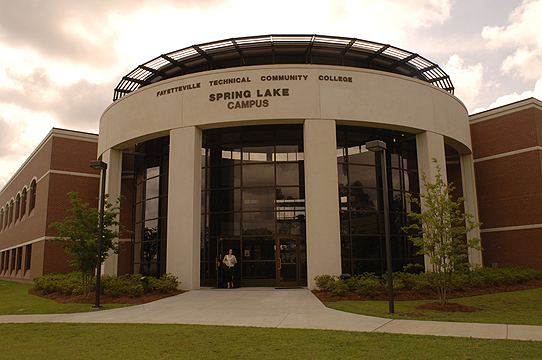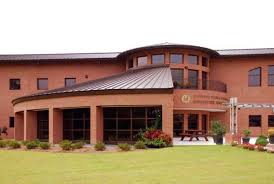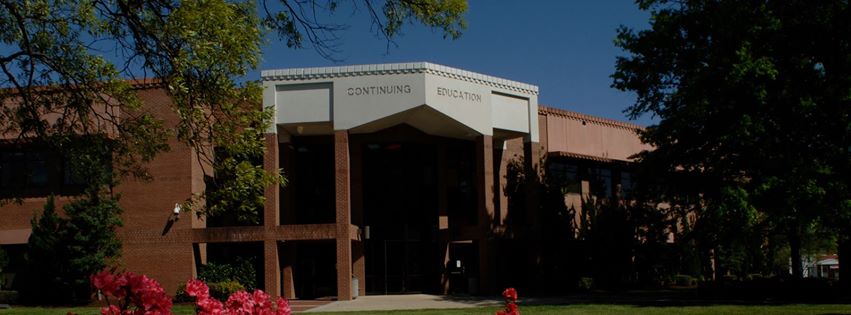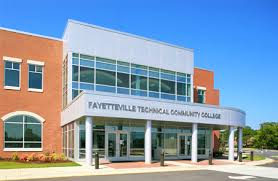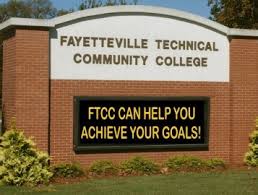
 |
| Reports | Next ► |
|---|
The number of full-time faculty members is adequate to support the mission of the institution and to ensure the quality and integrity of each of its academic programs. Upon application for candidacy, an applicant institution demonstrates that it meets the comprehensive standard for faculty qualifications. (Faculty)
| ____ Non-Compliance |
|---|
Summary
Fayetteville Technical Community College (FTCC) is in compliance with this core requirement. Although there are no statewide standards on full-time to part-time faculty ratios, FTCC has a 16.0 student-to-faculty ratio, with 75% of contact hours taught by full-time faculty. The normal faculty workload is 18-20 contact hours per week teaching, 5 divisional administrative hours, and 5 office hours per week. This allows for the remainder of a 40-hour work week to be spent for class preparation activities and completing other duties as assigned. In addition, the process of validating the credentials and evaluating the instructor’s performance annually ensures the continued quality and effectiveness of instruction.
Narrative
The College has an adequate number of faculty members to support its mission. FTCC’s mission is the cornerstone of the College’s process for determining the number and type of faculty employed. With a focus on serving the community as a learning-centered institution and building a globally competitive workforce that supports economic development, the College employs an adequate number of full-time faculty who are qualified to provide the learning experience needed to prepare students for the workforce as well as perform other mission critical duties. The mission is reviewed against the data collected in program reviews to determine the number of faculty to be employed with each academic program. At FTCC, full-time and part-time faculty provide quality instruction and services needed to foster student success.
Full-time faculty have additional duties (pg. 396) that include, but are not limited to, academic advising, providing recommendations to administration on curriculum developments, requesting equipment modifications or additions needed for program success, and serving on internal and external committees. Additionally, faculty drive academic assessment plans for their programs and analyze the data collected to determine if projected program outcomes were met or action plans were needed for program improvements.
Full-time faculty at FTCC are employed on ten and twelve month contracts. Adequate time is provided for faculty to engage in instructional and non-instructional administrative functions. According to the Faculty Handbook (pg. 35); the average workload is 18 contact hours for technical and general education faculty members and 20 contact hours for vocational faculty members. In addition to teaching hours, FTCC full-time faculty members are required to maintain a minimum of five office hours per week to meet with students individually on both academic and administrative issues. Full-time faculty also provides 5 divisional administrative hours to assist with student registration, attend committee meetings, and fulfill other College requirements.
To ensure the quality of curriculum programs, coordinators, department chairs, and division chairs, continuously evaluate teaching quality within their department or division. Additionally, student support staff provides the academic support, advising, information, and guidance needed to advance student development.
FTCC calculates the student-faculty ratio by measuring the number of full-time faculty (274) and the per semester average number of full-time equivalent students (FTE) (4,406). Using the same calculation methodology, the College’s student-faculty ratio is comparable to other North Carolina community colleges of similar size. FTCC’s student-faculty ratio is currently 16.1.
FTCC has full-time faculty needed to achieve the College’s mission. Program leadership consistently evaluates the number of full-time faculty necessary to maintain academic/instructional quality and perform mission-critical duties in each program area. Information is also collected and analyzed from program reviews to make recommendations for full-time faculty expansions. The Academic Program Review is conducted within each program every three years. In this review, academic department heads are required to conduct an analysis of the number of program courses taught by full-time faculty as well as mission-critical functions performed by full-time faculty. Through this process, academic program heads are able to determine if additional full-time faculty are needed to maintain or improve academic program standards. In addition to the Academic Program Review, as shown in the student-ratio chart above, administrators conduct a comparative analysis to determine if the number of full-time faculty employed by the College is commensurate with other North Carolina community colleges of similar size.
During the fall 2014 semester, 1,973 course sections were taught by full and part-time faculty. Of the 1,973 courses, full-time faculty accounted for 76% of the instruction, while part-time faculty accounted for 24% of the instruction. For the spring 2015 semester, 1,983 course sections were taught by full and part-time faculty. Of the 1,983 courses, full-time faculty accounted for 73% of the instruction, while part-time faculty accounted for 27% of the instruction. Based on this data, over two-thirds of the instruction at FTCC is provided by full-time faculty members. This demonstrates FTCC’s commitment to ensuring that an appropriate number of full-time faculty are maintained to support the College’s mission and to ensure the quality and integrity of each of its academic programs.
As outlined in the Organizational Handbook (pg. 398), full-time faculty are required to teach classes at off campus instructional sites as well as provide instruction using various modes of delivery. In the fall 2014 semester, 31,232 online teaching contact hours were generated. Of the 31,232 online teaching contact hours, 59% of the hours were generated by full-time faculty members, while part-time instructors accounted for 41% of the teaching hours. For the spring 2015 semester, 32,096 online teaching contact hours were delivered. Of the 32,096 online teaching contact hours, 61% of the hours were generated by full-time faculty members, while part-time faculty accounted for 39% of the online teaching hours. On average, 60% of all online instruction is delivered by full-time faculty members. This demonstrates that FTCC has an appropriate distribution of faculty teaching in both seated and online modes of delivery. For off campus sites, 72% of the instruction was delivered by full-time faculty during the fall 2014 semester, while 28% of the instruction was provided by part-time faculty. For spring 2015, 80% of the instruction was delivered by full-time faculty while 20% of the instruction was delivered by part-time faculty.
Among the seven academic program divisions, FTCC has an adequate number of full-time faculty distributed within each program. According to the Full and Part-time Academic Program Distribution Report, Business programs provided instruction for 633 courses during the 2014-2015 academic year. Of the 633 courses, 67% of the courses were taught by full-time faculty members. For computer technology programs, 371 courses were taught during the 2014-2015 academic year. Of the 371 courses, 81% of the courses were taught by full-time faculty members. When examining the Engineering and Applied Technology program courses, 291 courses were taught during the 2014-2015 academic year. Of the 291 courses, 78% of the courses were taught by full-time faculty members. An analysis of the Health Science program courses revealed that 186 courses were taught during the 2014-2015 academic year. Of the 186 courses, 95% of the courses were taught by full-time faculty members. For Math and Science program courses, 685 courses were taught during the 2014-2015 academic year. Of the 685 courses, 95% of the courses were taught by full-time faculty members. For Public Service program courses, 448 courses were taught. Of the 448 courses taught, 55% of the courses were delivered by full-time faculty members. Lastly, among the 1,084 Arts and Humanities program courses taught during the 2014-2015 academic year, 67% of the courses were delivered by full-time faculty members.
Part-time faculty members are held to the same credentials and teaching standards as full-time faculty. Part-time faculty are critical to the College’s mission, supplementing full-time faculty by providing additional instructional resources. Part-time curriculum instructors are employed, as needed, up to 28 hours per week. To ensure the quality and integrity of academic programs, classroom observations and students’ evaluations (pg. 20) of part-time faculty will be conducted annually.
FTCC regularly updates faculty credentials to ensure ongoing compliance with this core requirement. Academic Deans document and validate faculty credentials as part of the initial onboarding processes before the faculty member is assigned classes. All new faculty members must complete the FTCC Excellence in Teaching course, designed to prepare faculty for face-to-face and online instruction as a condition of employment. In addition, as described in the Performance Appraisal Procedures (pg. 59), all employees, including faculty, are evaluated annually. This appraisal includes a review of the job description, establishing specific objectives for the upcoming appraisal period and performance attributes that are most critical to the function of the position. The performance appraisal process includes an analysis of student course evaluations, supervisors’ classroom observations, and individual professional development and goals. Additionally, full-time and part-time faculty teaching distance education courses are evaluated annually using the faculty online teaching observation form.
The components of credentials, workload, professional development, and appraisals bring together the checks and balances required to ensure the quality and effectiveness of instruction. Quality instruction remains a continuous and ongoing priority at FTCC. The faculty's dedication to quality is evident by the Graduate Survey, which shows that 98.2% of graduates are satisfied with the quality of instruction received at FTCC.
